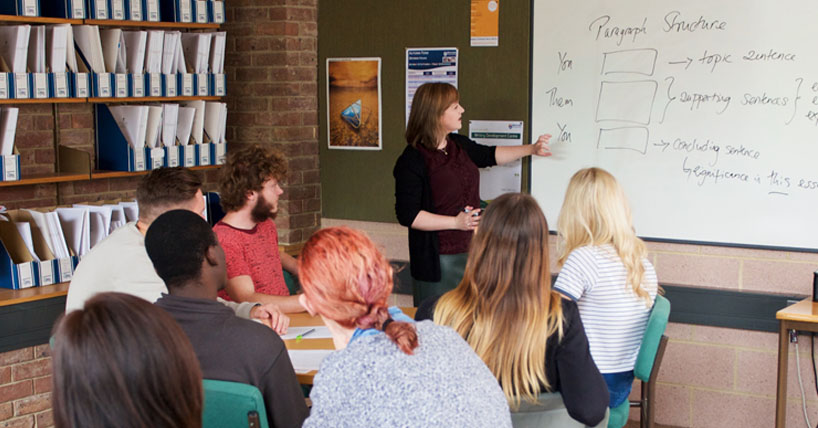Apostrophes
How to effectively use apostrophes.
Possessive apostrophes
Possessive apostrophes are used to indicate that something belongs to a person or thing. Note how the change in the location of the apostrophe indicates singular or plural use:
For example:
The researcher’s project’s results (one researcher and one project)
The researcher’s projects’ results (one researcher and multiple projects)
The researchers’ project’s results (multiple researchers and one project)
The researchers’ projects’ results (multiple researchers and multiple projects)
Checking the use of possessive apostrophes
To check the apostrophe is used correctly it should be possible to rearrange the order of the sentence and substitute the apostrophe for ‘of’ or ‘by’.
- Research by Smith (2016) shows that students have a substantial impact on the night time economy of Newcastle during certain times of the year
- Smith’s (2016) research shows that students have a substantial impact on Newcastle’s night time economy during certain times of the year
Other uses of possessive apostrophes
Possessive apostrophes are also used after nouns ending with “s” and plural forms: for example, for a name ending with “s”:
Silas’ (2017) theory highlights…
For example, plural forms:
Students’ views of feedback suggest their satisfaction with the experience
When used in words that end with an “s”, the “s” after the apostrophe may be dropped. Whilst both are correct, it is good practice to be consistent.
For example:
Thomas’ (2019) research or Thomas’s (2019) research.
A common misuse of apostrophe is: it’s (when used to describe possession). The correct form for possession is shown in the example: The study has its own limitations.
“It’s” should only be used for a contraction of “it is”.
For example:
It’s a controversial topic.
Contractions
Contractions are created when the apostrophe replaces a letter, or letters, to shorten a word.
For example:
I’ve (I have), I’m (I am), can’t (cannot), would’ve (would have), don’t (do not)
Although the use of contractions may be considered too informal for most forms of academic writing.
Special plurals
Usually plurals do not need apostrophes.
For example:
Previous investigations highlight this as an area of further research.
Apostrophes are often mistakenly used in normal plurals, especially when the word ends with a vowel, e.g. ‘one potato’, ‘two potato’s’. This is incorrect because apostrophes do not make singular words plural. Instead, one potato becomes two potatoes – no apostrophe required!
Special plurals refer to words which do not usually have a plural form but may have an apostrophe when they are pluralised, although this can be an issue of personal style” – add comma after ‘pluralised’, otherwise it’s a bit long for one sentence!
For example:
The majority of students achieved b’s.






